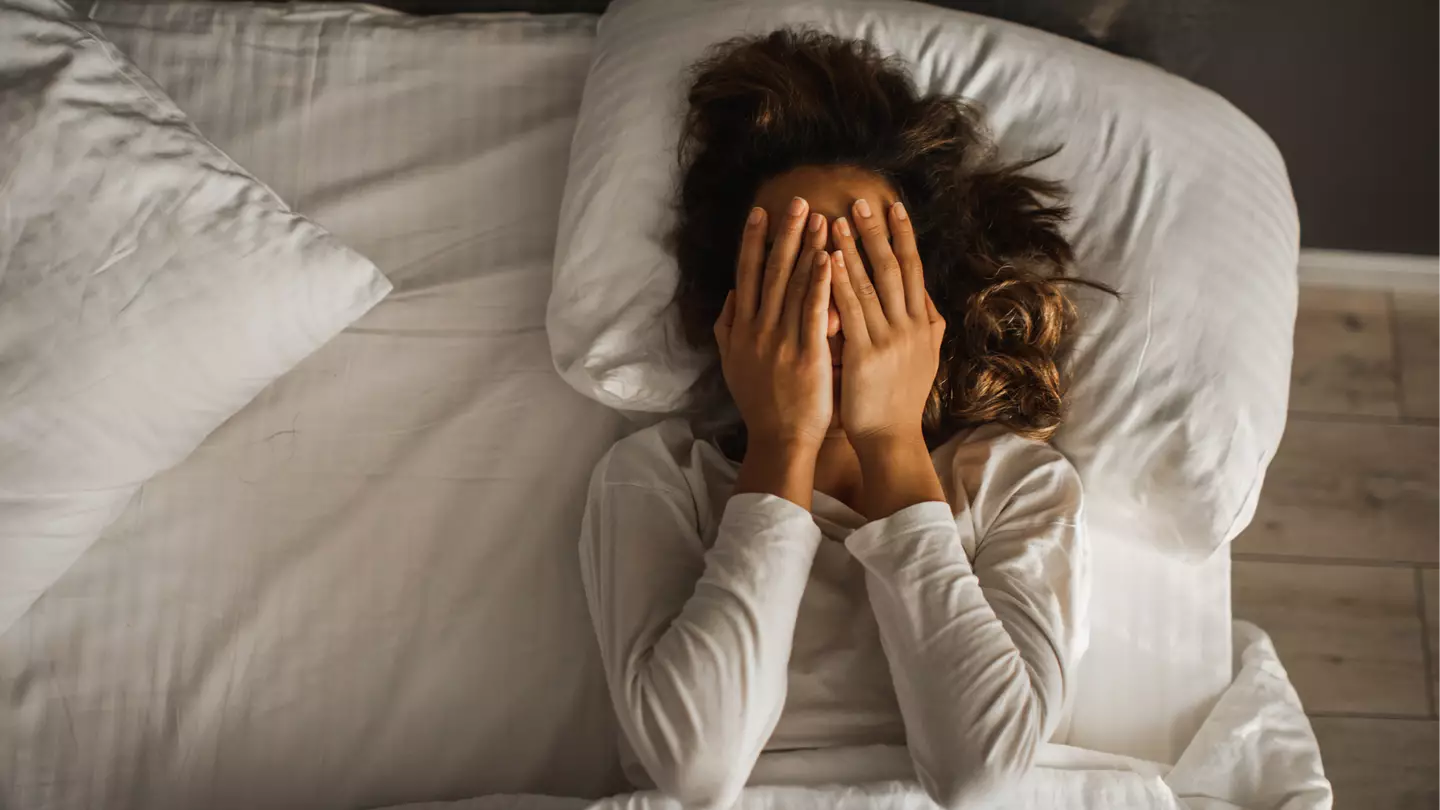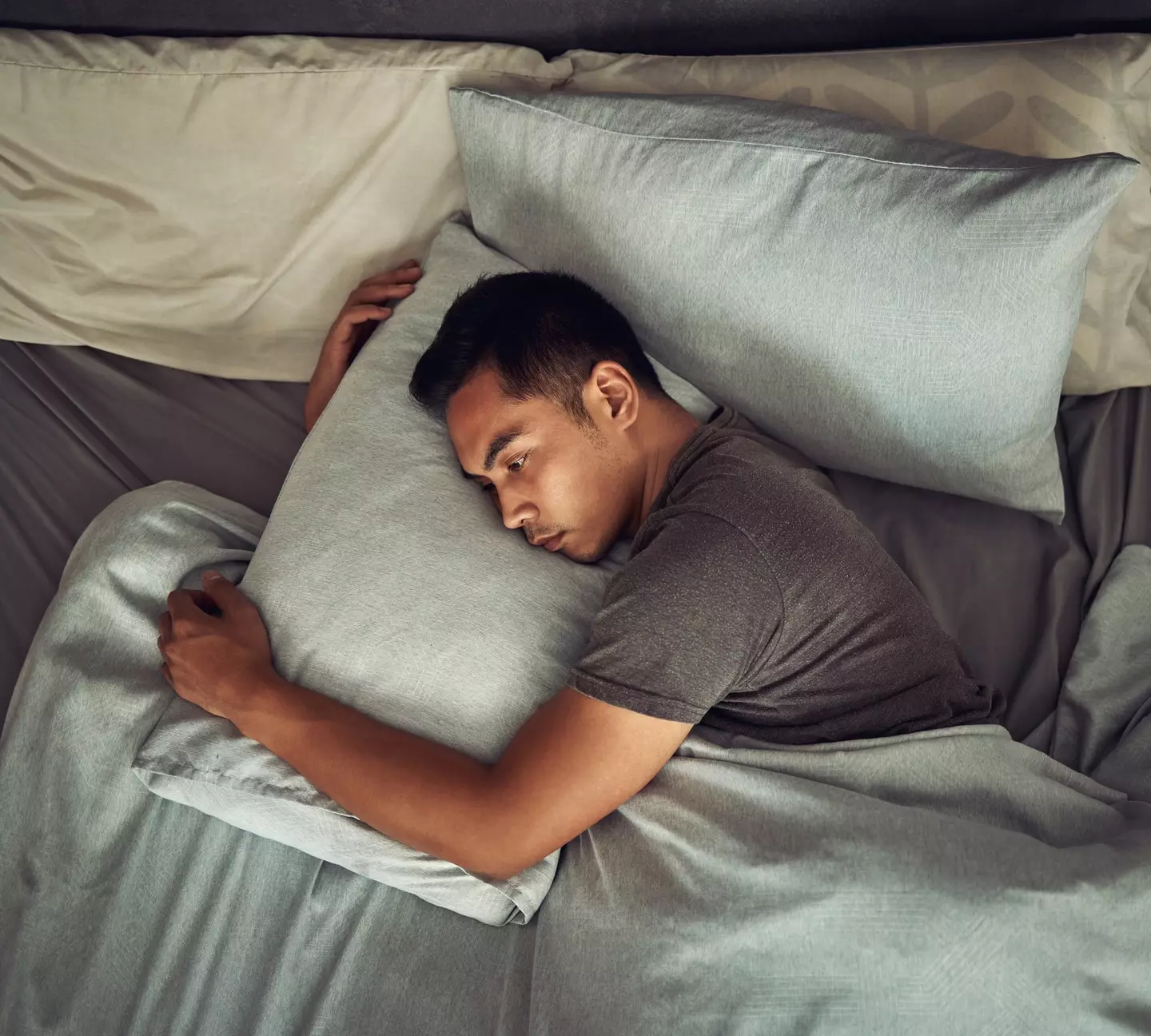
If you struggle to sleep when stressed, you're not alone.
Almost three quarters (74 percent) of American adults report 'sometimes, always, or often' experiencing disrupted sleep due to stress, as per the American Academy of Sleep Medicine.
It's hardly surprising; tossing and turning as you try to get your racing mind under control isn't exactly conducive with a good night's shut-eye.
And now, a sleep expert has highlighted the startling toll stress can take on our health as we try to battle through.
Advert
While stress can be helpful in short bursts - it's our survival instinct, after all - it can also do more harm than good when it comes to sleep.
Certified sleep health and wellness expert Eric Ridenour at Eachnight.com explains that while sleeplessness is inevitable at times, people are experiencing what's known as 'stress-induced insomnia'.

"What we need to understand is that stress and sleep are biologically linked," he said. "When stress goes up, arousal systems in the brain remain active. That means even if your body is tired, your brain might be too alert to fall asleep."
Over time, this mismatch 'trains the brain to associate bedtime with frustration, not rest', Ridenour added.
Impacts of stress on sleep

A study by Eachnight.com has uncovered just how deeply stress sabotages our sleep.
Those experiencing moderate to high stress reported onset insomnia - struggling to fall asleep as their minds raced.
Even when they did manage to sleep, it was shorter and less restorative, as total sleep duration dropped by an average of 1.5 hours per night among chronically stressed individuals.
Worse still, REM (rapid eye movement) sleep - the crucial final stage where the brain processes emotions - was significantly reduced.
This results in a spike in irritability, forgetfulness and lack of motivation.
The study also revealed that cortisol, the body’s primary stress hormone, stayed elevated even two hours after bedtime, making it difficult to unwind.
In essence, stress has the body reacting as if it’s in physical danger, but as the research explains 'the trigger is mental, and the threat never ends'.
How to sleep better when you're stressed

Fortunately, there are a number of practical steps you can take to help you sleep better, even when you've got a lot on your mind.
A lot of it is involved in creating a night time routine.
Firstly, stop checking e-mails and work notifications after a set time. Then, journal your thoughts or make a to-do list before bed to clear your mind.
Another great tip is to create a 'buffer' zone around 30 minutes to an hour before bed, where you remove screens and other potential stress triggers.
"Try a calming routine like light reading, stretching or meditation," the expert suggested.
When it's time to get some shut-eye, make sure your bedroom is dark, cool and distraction-free.
If needed, try white noise or other calming soundscapes to help drown out your thoughts.
It's important to try and stick to a consistent sleep and wake schedule, too, even on weekends. As tough as it is to implement, it really does make a difference.
Topics: Health, Mental Health, Sleep, US News